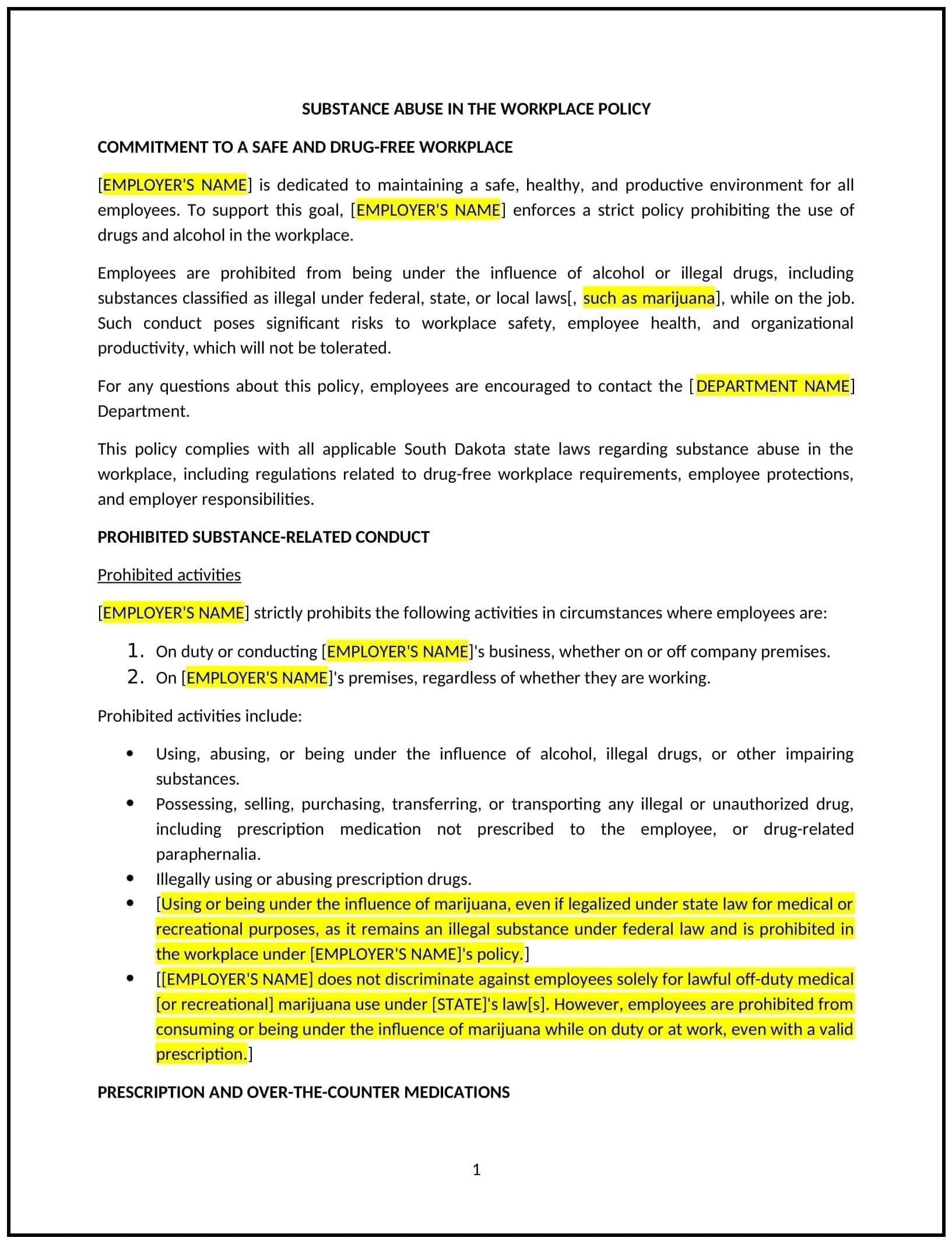Substance abuse in the workplace policy (South Dakota): Free template
Got contracts to review? While you're here for policies, let Cobrief make contract review effortless—start your free review now.

Customize this template for free
Substance abuse in the workplace policy (South Dakota)
This substance abuse in the workplace policy is designed to help South Dakota businesses address the use of alcohol, illegal drugs, and prescription medications that impair job performance. It outlines rules for substance use, testing procedures, and support resources for employees struggling with addiction.
By adopting this policy, businesses can promote a safe and productive work environment, reduce risks associated with substance abuse, and align with general best practices for workplace safety.
How to use this substance abuse in the workplace policy (South Dakota)
- Define prohibited substances: Specify which substances are prohibited, such as alcohol, illegal drugs, and misused prescription medications.
- Address impairment: Outline rules for employees reporting to work under the influence of substances that impair their ability to perform job duties safely.
- Set testing procedures: Provide guidelines for drug and alcohol testing, including pre-employment, random, and post-incident testing.
- Offer support: Include information about employee assistance programs (EAPs) or resources for employees seeking help with substance abuse.
- Outline consequences: Explain the disciplinary actions for violating the policy, such as warnings, suspension, or termination.
- Train managers: Educate supervisors on recognizing signs of substance abuse and handling related incidents.
- Review and update: Assess the policy annually to ensure it aligns with evolving workplace needs and legal standards.
Benefits of using this substance abuse in the workplace policy (South Dakota)
This policy offers several advantages for South Dakota businesses:
- Promotes workplace safety: Reduces the risk of accidents and injuries caused by impaired employees.
- Enhances productivity: Ensures employees are fit to perform their duties, leading to better performance and efficiency.
- Aligns with best practices: Demonstrates a commitment to maintaining a safe and professional work environment.
- Supports employees: Provides resources for employees struggling with substance abuse, fostering a culture of care and support.
- Mitigates risks: Helps reduce legal and financial liabilities associated with workplace incidents caused by substance abuse.
Tips for using this substance abuse in the workplace policy (South Dakota)
- Communicate the policy: Share the policy with employees during onboarding and include it in the employee handbook.
- Provide training: Educate employees and managers on the policy’s expectations and procedures.
- Offer resources: Promote employee assistance programs (EAPs) or other support services for those struggling with substance abuse.
- Monitor compliance: Regularly review workplace incidents and testing results to ensure adherence to the policy.
- Update regularly: Review the policy annually to ensure it remains relevant and effective.